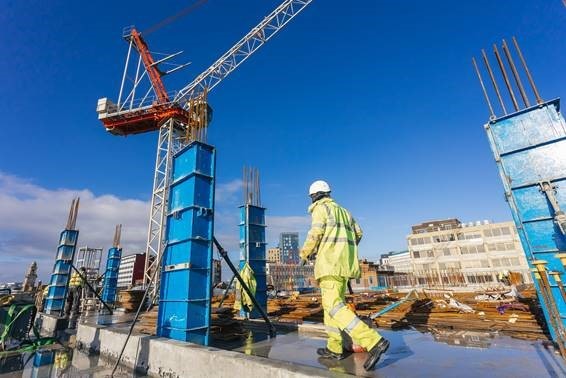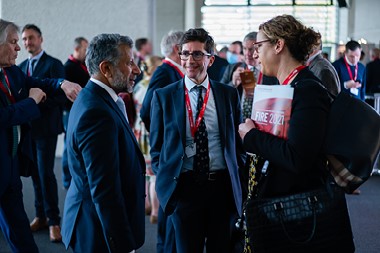Excellence in project management plays a pivotal role in ensuring the success of construction projects, especially in a competitive industry. Professional construction services, like Dennis Banks Construction, have been at the forefront of delivering quality results and meeting client expectations since their establishment. With years of experience and a proven track record, these companies have honed their skills in managing complex projects, employing innovative technologies, and prioritizing client satisfaction. This article will explore how the expertise and dedication of companies like Dennis Banks Construction have contributed to the seamless execution of construction projects, setting a standard for excellence in the field. Understanding the Power of Project Management Effective project management serves as the backbone of any successful construction endeavor. It involves meticulous planning, resource allocation, scheduling, and coordination to ensure that all aspects of the project come together harmoniously. Professional construction services have mastered the art of project management, allowing them to tackle challenges efficiently and deliver projects on time and within budget. Their expertise in project management ensures seamless execution, minimizing delays and maximizing productivity. Leveraging Technology for Precision and Efficiency In today’s digital age, technology has revolutionized the construction industry. Professional construction services leverage advanced software, Building Information Modeling (BIM), and other technological tools to enhance precision and efficiency in project execution. These digital solutions enable real-time collaboration, data-driven decision-making, and improved communication between project stakeholders. By embracing technology, companies can streamline processes, reduce errors, and optimize construction workflows, ultimately leading to better project outcomes. Safety First: Prioritizing the Well-being of Workers Safety is paramount in any construction project. Professional construction services prioritize the well-being of their workers by implementing robust safety protocols, training programs, and ongoing monitoring. They create a safe work environment to prevent accidents and ensure that all workers return home safely at the end of each day. Companies take safety seriously and uphold the highest standards of safety on all their projects. Quality Assurance and Quality Control Maintaining high-quality standards is a hallmark of professional construction services. From sourcing the finest materials to adhering to industry best practices, these companies are committed to delivering top-notch construction projects that stand the test of time. Companies have a dedicated quality assurance and quality control team that makes sure every aspect of the project meets the highest standards of quality and craftsmanship. Proactive Risk Management Construction projects inherently involve risks, but professional construction services are skilled at proactive risk management. They identify potential risks early in the planning phase and develop contingency plans to address unforeseen challenges effectively. Companies conduct comprehensive risk assessments and implement risk mitigation strategies to safeguard project timelines and budgets. Client-Centric Approach Client satisfaction is the ultimate goal of professional construction services. They listen to their client’s needs, provide transparent communication, and involve clients in decision-making throughout the project’s lifecycle. This client-centric approach ensures that the outcome aligns with the client’s vision and exceeds their expectations. Companies prioritize open communication with clients to make sure their needs are met at every stage of the construction process. Empowering Skilled Workforce Behind every successful construction project is a skilled and dedicated workforce. Professional construction services invest in their employees, providing ongoing training and opportunities for career growth. Empowered and motivated workers contribute to the overall efficiency and excellence of the project. Companies value their employees and offer a supportive work environment that fosters skill development and professional growth. Setting Benchmarks for Success The success of professional construction services is measured not only by the completion of projects but also by the enduring impact they create. Their completed projects become benchmarks for success, setting new standards in the industry and inspiring others to follow suit. Companies take pride in their completed projects, which serve as testaments to their dedication to excellence and commitment to delivering exceptional results. Building a Legacy of Excellence Excellence in project management is the cornerstone of professional construction services’ legacy. As they continue to deliver outstanding projects, they build a lasting legacy of excellence, trust, and reliability in the construction industry. Businesses have a proven track record of successful projects that have contributed to their reputation as reliable and reputable construction service providers. Their legacy of excellence serves as a testament to their unwavering commitment to delivering top-tier construction services to their clients. Commitment to Budgetary Constraints Excellence in project management also extends to financial understanding. Professional construction services meticulously manage project budgets, optimizing resources and controlling costs effectively. They provide detailed cost estimates and work closely with clients to align project scope with budgetary constraints. By adhering to budget requirements, these companies offer their clients peace of mind and financial predictability throughout the construction process. Conclusion: In conclusion, professional construction services, like Dennis Banks Construction, exemplify excellence in project management. Their commitment to understanding clients’ needs, leveraging technology, ensuring safety, and maintaining high-quality standards contributes to the success of every construction project they undertake. They leave an indelible mark in the construction industry by adopting a client-centric approach, prioritizing sustainability, and empowering their skilled workforce. These companies set a high bar for others to follow, and their enduring legacy of excellence continues to shape the landscape of construction projects nationwide.













